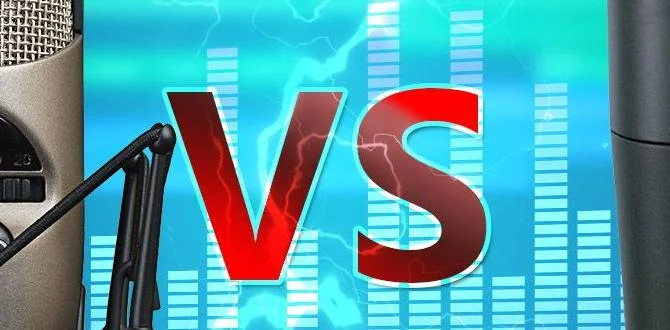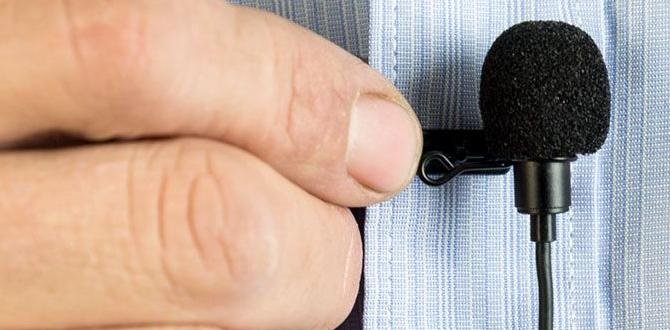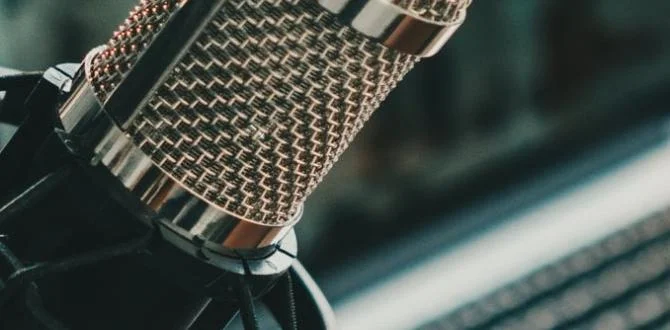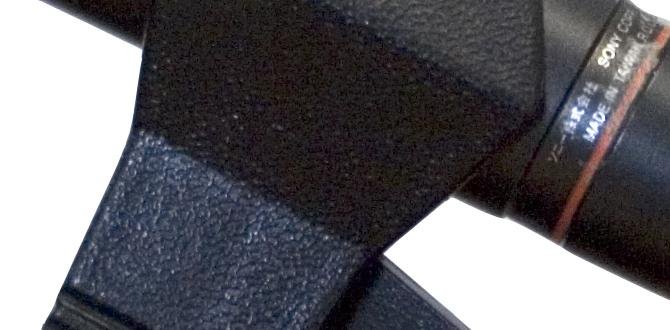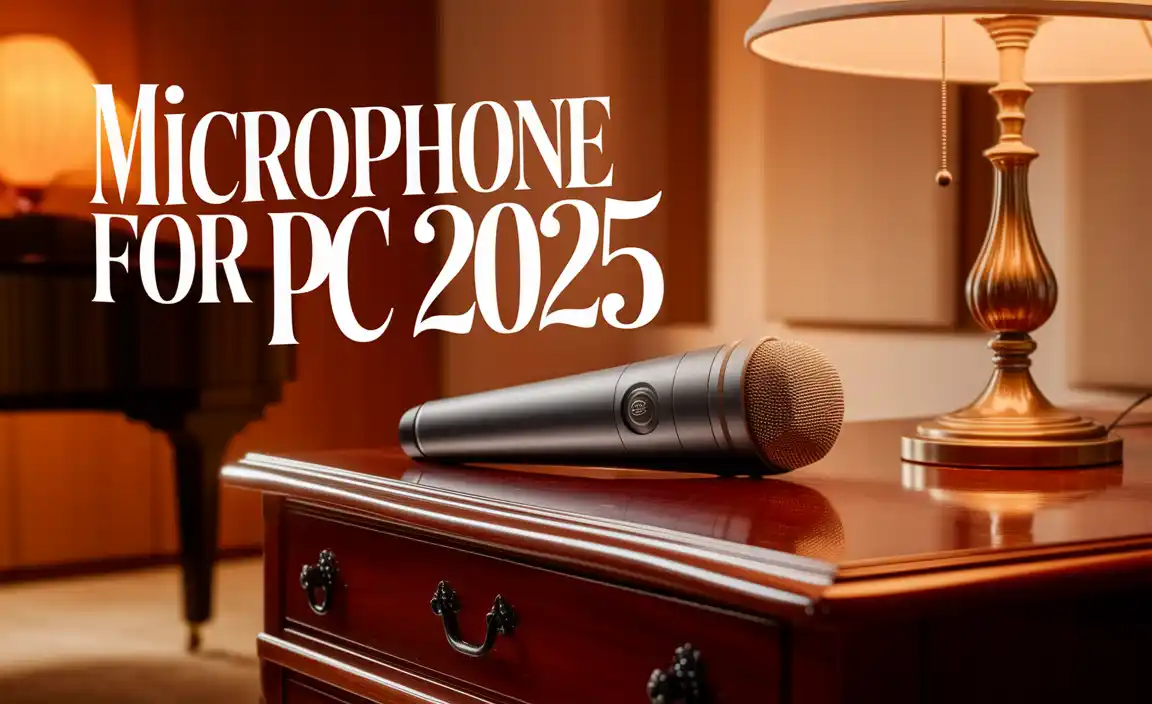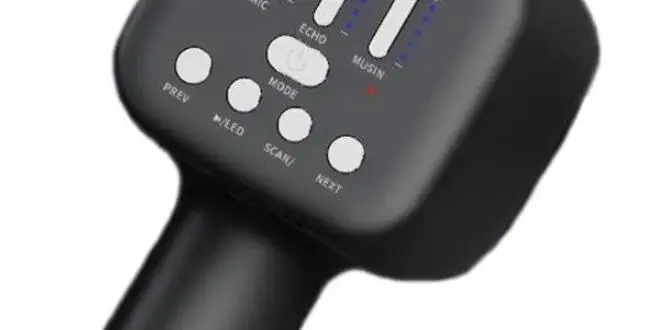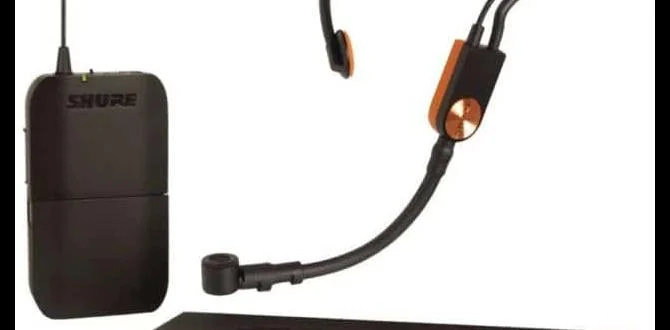Have you ever wondered why some singers sound amazing while others don’t? A lot can depend on the microphone for singing they use. It’s not just about singing talent. The right microphone can make a huge difference!
Imagine you are at a concert. The singer’s voice fills the arena, and everyone is singing along. What if they used a cheap microphone? The sound would be different, right? A good microphone is like a magic wand for a singer.
In this article, we will explore the differences between microphones for singing and those for other purposes. You’ll learn which type is best for your needs. Whether you sing in the shower or on stage, the right microphone can help you shine!

Microphone For Singing Vs. Other Audio Recording Options
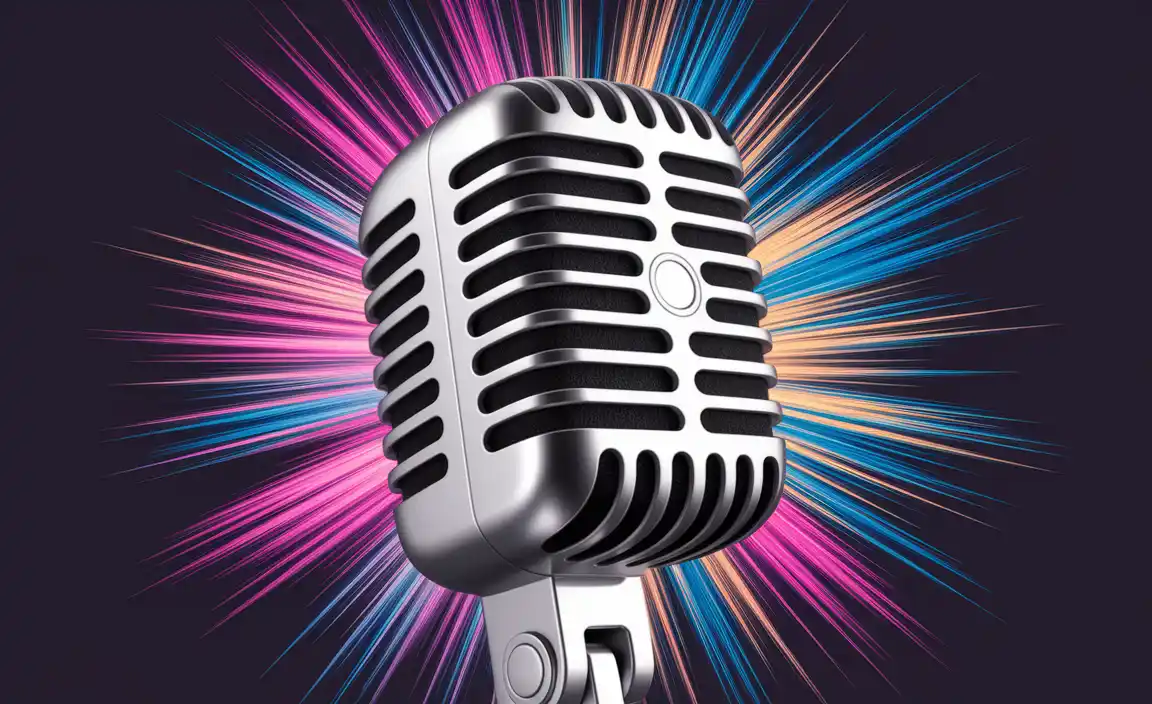
Understanding Different Types of Microphones
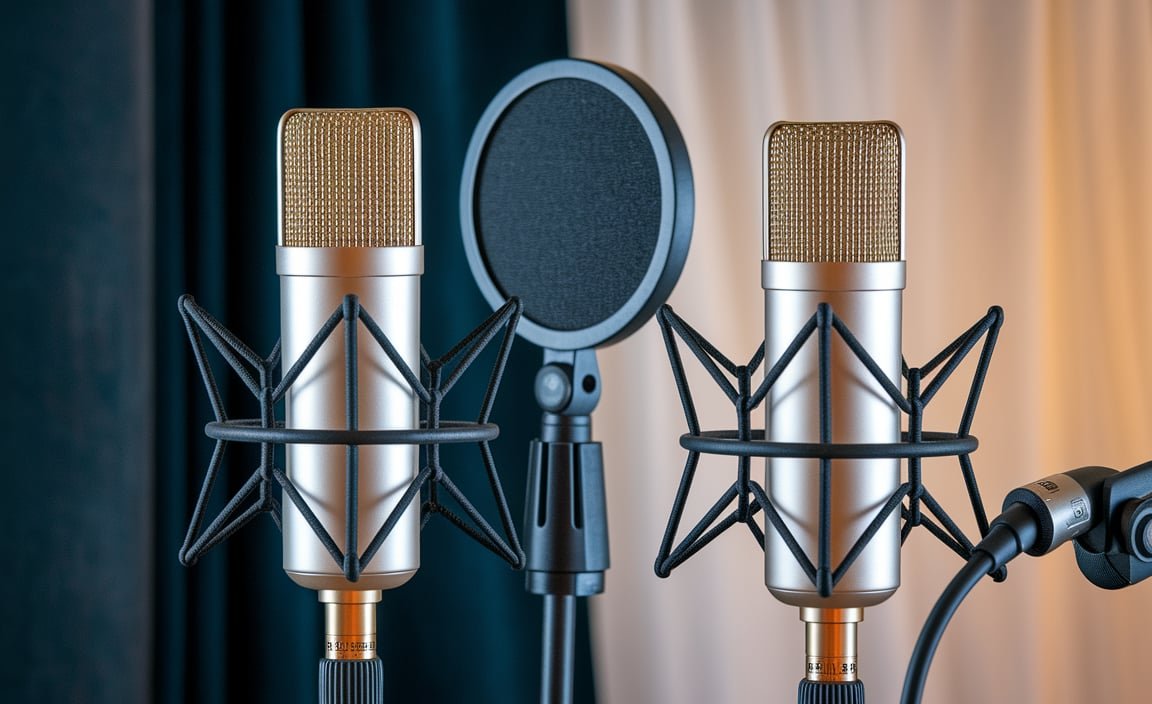
Dynamic Microphones: Characteristics and Uses. Condenser Microphones: Advantages for Singers.
Microphones come in two main flavors: dynamic and condenser. Dynamic microphones are tough cookies. They are excellent for loud sounds and live performances. You can even drop one and it will survive! Singers love them for their durability and affordability. On the other hand, condenser microphones are the prima donnas of the microphone world. They are sensitive and great for capturing soft sounds, making them perfect for studio recordings. Their clarity helps singers shine bright like a diamond!
| Microphone Type | Characteristics | Best Used For |
|---|---|---|
| Dynamic | Durable, handles loud sounds | Live performances, vocals |
| Condenser | Sensitive, captures details | Studio recordings, soft vocals |
The Importance of Microphone Quality in Singing
How Microphone Quality Affects Vocal Clarity. Effects of Microphone Types on Performance.
Good microphone quality is vital for singing. It helps your voice shine clearly. High-quality microphones catch every note and tone. If the mic is poor, your voice may sound muffled or unclear. Different types also affect your performance. For example:
- Dynamic microphones: Great for loud areas.
- Condenser microphones: Best for soft songs and studio use.
- USB microphones: Easy for beginners to use at home.
Choosing the right microphone can truly boost your musical journey!
How does microphone quality affect singing?
Microphone quality impacts how clearly your voice is heard. A good mic can make your singing sound rich and full. Poor mic quality can hide your talent. It’s like singing in a tunnel!
Effects of Microphone Types on Performance
Different microphones can change your style:
- Dynamic mics: These are tough and good for loud sounds.
- Condenser mics: These pick up soft details, perfect for studios.
- USB mics: Easy to connect to computers for recording.
Each type brings out your voice in unique ways!
Microphone Features to Consider for Singing
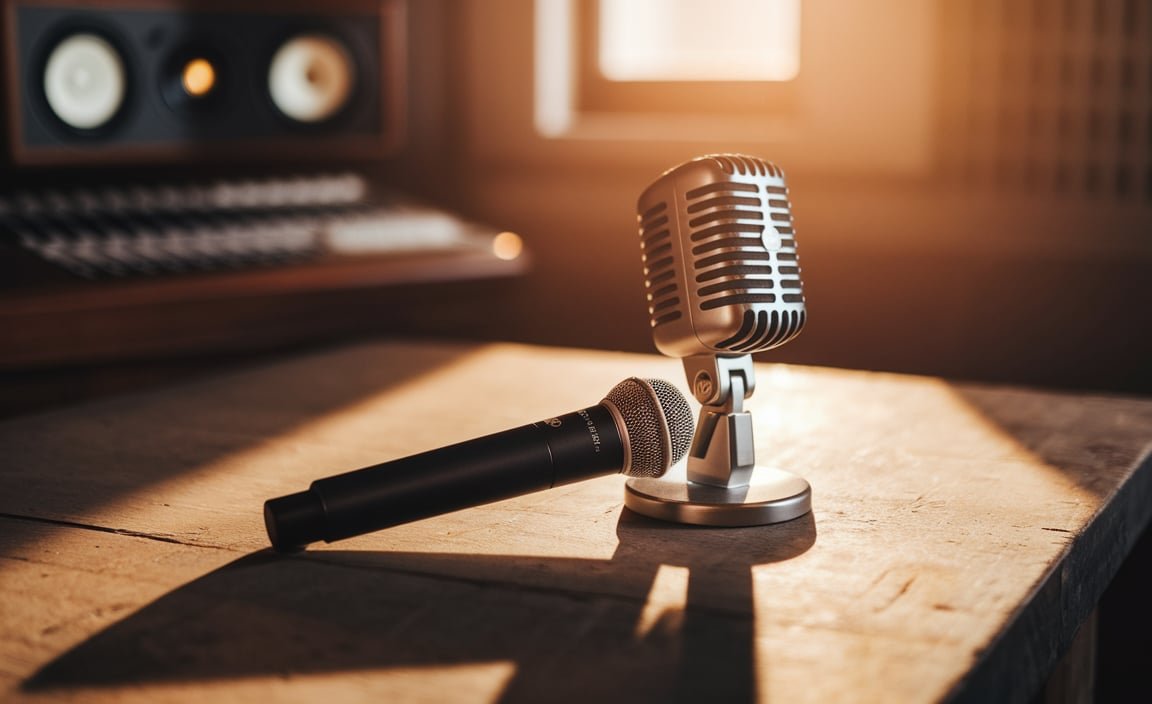
Frequency Response: What’s Ideal for Vocals?. Directionality: Cardioid vs. Omnidirectional.
Picking the right microphone for singing is like choosing the perfect pizza topping—everyone has their favorite! First, consider frequency response. A good mic for vocals should have a range that highlights the warmth and clarity of your voice. Aim for frequencies from 80 Hz to 15 kHz for the best results. Next, think about directionality. Cardioid mics capture sound from the front, perfect for solo performers. Omnidirectional mics, on the other hand, catch sound from all around, great for group sing-alongs, though they might also pick up a bit of crowd noise—like someone happily munching on popcorn!
| Feature | Cardioid | Omnidirectional |
|---|---|---|
| Sound Capture | Front only | All around |
| Background Noise | Minimized | Included |
| Best For | Solo singing | Group singing |
So remember, your charming voice deserves a mic that gets it just right!
Microphone Setups for Different Singing Environments
Studio vs. Live Performance Microphone Choices. Additional Equipment: Pop Filters and Stands.
Different singing spots need different microphones. In a studio, singers often use high-quality condenser mics. These mics capture every detail of a voice. For live performances, dynamic mics are popular because they resist background noise. It’s essential to have the right tools too. Pop filters can help reduce unwanted sounds. Stands keep the mic steady and at the right height for singers. Choosing the right setup makes singing better.
What microphone is best for singing in a studio?
For studio singing, the best choice is often a condenser microphone. They capture music’s details and warmth really well.
What microphone is best for live performances?
For live settings, dynamic microphones are great. They handle loud sounds and block background noise effectively.
Additional Equipment:
- Pop Filters: Help cut out breath sounds.
- Microphone Stands: Keep the mic in a stable position.
Comparing Popular Microphones for Singing
Top Dynamic Microphones for Vocalists. Best Condenser Microphones for Home Recording.
Finding the right microphone can feel like searching for a needle in a haystack! Let’s simplify it. Top dynamic microphones are tough cookies. They handle loud sounds well. Perfect for singers who like to belt it out! On the other hand, condenser microphones are ideal for home recording. They pick up every little detail, like your cat’s meow during a quiet ballad. Here’s a handy table to compare some popular choices:
| Type | Best Models | Features |
|---|---|---|
| Dynamic | Shure SM58 | Durable, great for live shows |
| Dynamic | Electro-Voice RE20 | Versatile, great for vocals |
| Condenser | Audio-Technica AT2020 | Detail-rich sounds, budget-friendly |
| Condenser | Rode NT1-A | Whisper-quiet, perfect for home setups |
So whether you’re rocking out live or recording at home, there’s a mic that fits your style!
Tips for Choosing the Right Microphone for Your Voice
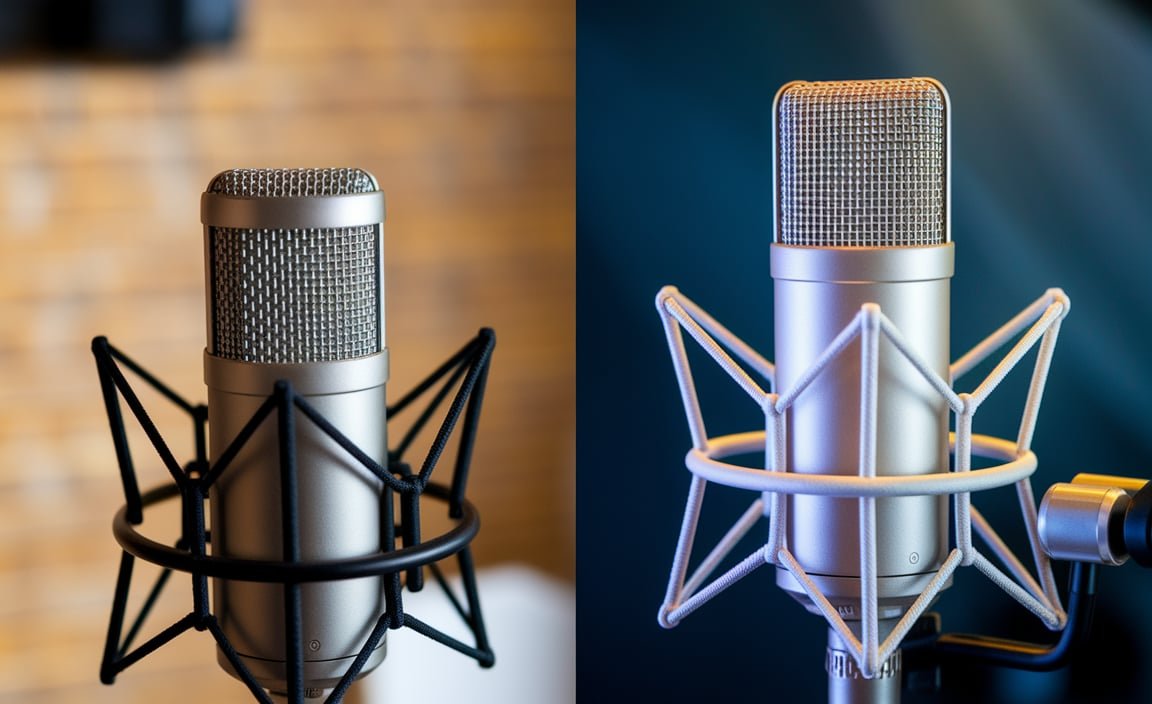
Your Vocal Range and Mic Compatibility. Budget Constraints and Best Options for Every Price Range.
Choosing the right microphone can feel like hunting for a unicorn in a haystack! First, think about your vocal range. Different mics work better for different voices. If you sing high notes, a condenser mic is often the champ. If you have a deep voice, a dynamic mic might be your best pal. Budget matters too! Here’s a quick look at options for every wallet:
| Price Range | Recommended Microphone |
|---|---|
| Under $50 | Shure SM48 |
| $50 – $150 | Audix OM2 |
| $150 – $300 | Akg C214 |
| Above $300 | Shure KSM8 |
Remember, great things come in affordable packages too! Don’t forget to try the mic first. It should feel like a cozy pair of shoes, not a rock on your foot!
Common Myths about Singing Microphones
Debunking Misconceptions about Microphone Types. Understanding the Limitations of Celebrity Endorsements.
Many people think all microphones are the same. That’s not true! Microphones come in different types, each with unique strengths. For example, a dynamic microphone is great for loud sounds, while a condenser microphone picks up quieter sounds better. Others believe celebrity endorsements mean a microphone is the best choice. However, the right mic depends on your needs, not a star’s choice.
What are common myths about singing microphones?
Common myths include thinking all microphones sound the same and believing that celebrity choices guarantee quality. Always choose a microphone based on your needs and style, not who uses it.
Key Myths to Remember:
- Not all microphones suit every style.
- Stars don’t always choose the best microphone for you.
- Different types excel in different situations.
Maintaining and Caring for Your Singing Microphone
Cleaning and Storing Microphones Properly. Troubleshooting Common Microphone Issues.
It’s important to take care of your singing microphone. This helps it last longer and sound better. To clean it, gently wipe the surface with a soft cloth. For storage, keep it in a protective case. This avoids damage.
Common problems include low sound or no sound. If this happens, check the cable and connections first. Make sure they are secure. If the microphone is still not working, it may need repair.
How do I clean my microphone?
Use a soft cloth regularly. Avoid water or cleaners that may harm it.
Tips for Troubleshooting:
- Check the battery if it’s wireless.
- Inspect cables for damage.
- Ensure the microphone is plugged in correctly.
Conclusion
In summary, choosing the right microphone for singing is important. Dynamic mics are great for live performances, while condenser mics capture detail in the studio. Think about where you will use it. Test different mics to find your best sound. We encourage you to explore more about microphones and practice singing with them to boost your skills!
FAQs
What Are The Key Differences Between Dynamic And Condenser Microphones For Singing Applications?
Dynamic microphones are tough and can handle loud sounds. They are great for live singing because they don’t pick up too much background noise. Condenser microphones are more sensitive and catch all the details of your voice. They are best for quiet places or recording studios. So, choose dynamic for stage performances and condenser for clear recordings!
How Does Microphone Polar Pattern (E.G., Cardioid Vs. Omnidirectional) Affect Vocal Recording And Performance?
A microphone’s polar pattern is like its listening ears. A cardioid mic mostly hears sound from the front. This helps you pick up your voice clearly while blocking other noises. An omnidirectional mic hears sounds from all around. This can capture more background sound and is great for group singing.
What Features Should You Look For In A Microphone If You Plan To Use It For Both Live Singing Performances And Studio Recordings?
When choosing a microphone for live singing and studio recordings, look for a few key features. First, get a microphone that has good sound quality, so your voice sounds clear and nice. It’s also important to pick a microphone that is durable, so it can handle being used at shows. A good microphone should not pick up too much background noise. Lastly, find one that is easy to hold and use comfortably.
How Do Microphone Placement And Distance From The Singer Impact Sound Quality And Vocal Clarity?
If you place the microphone too far from the singer, the voice can sound weak and unclear. The sound can also pick up background noise, making it harder to hear the singing. When you bring the microphone closer, you get a clearer and stronger sound. Being at the right distance helps capture the singer’s voice better and makes it sound nice.
What Are Some Recommended Microphone Models For Beginners Versus Professional Singers?
For beginners, you might like the Audio-Technica AT2020 or the Shure SM58. They’re easy to use and sound good. For professional singers, the Neumann U87 and the Shure KSM8 are great choices. These mics capture amazing sound quality. You can pick one based on your needs!

